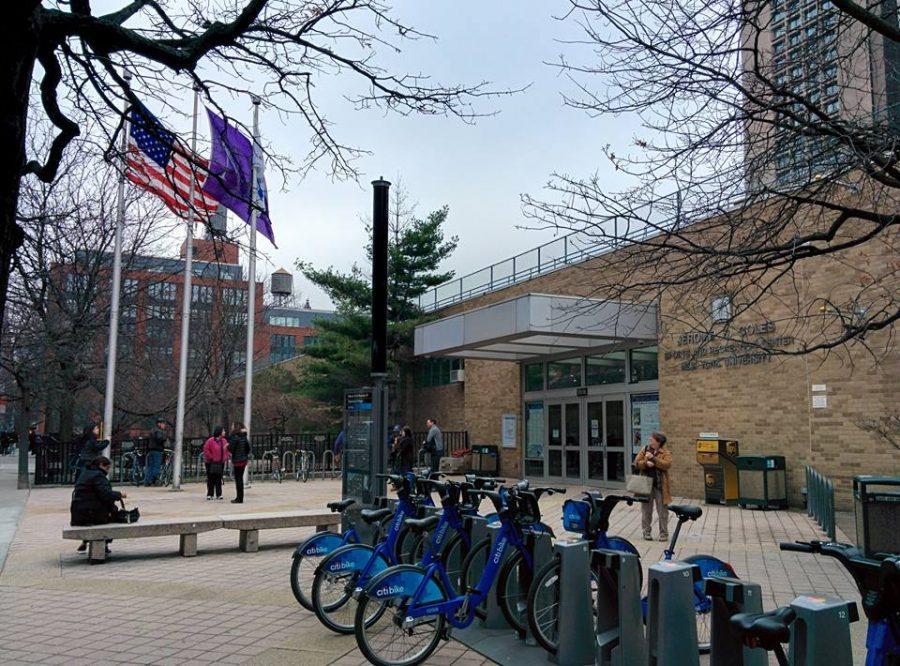Cherry Trees Downed in Coles Project
Neighbors of the Jerome S. Coles Sports Center oppose its invasive construction for the 2031 Expansion Plan.
September 9, 2016
As the new academic year begins, so does construction on the 200 block of Mercer Street. The Coles Sports Center at 181 Mercer St. closed last January, the result of outdated facilities which no longer met the needs of the university. As part of the 25 year 2031 expansion plan, the Coles facilities will be rebuilt over the next five years to include a new gym, classrooms, performance spaces and housing for students and faculty.
However, the neighbors are not pleased with this development. Rebecca Kong, a resident of the East Village, thinks this supposed improvement is detrimental to the area, and she expressed concerns with the chaos that comes with construction.
“Five years of construction will totally change the nature of our block,” Kong said. “It’s really the construction time, and the fact that the natural light will be diminished from our building — that will be mainly upsetting the community.”
In addition to cutting natural light, the necessary construction involved cutting down and transplanting several 30-year-old cherry trees.
Even after much consultation with independent arborists and NYC Parks, they determined that only four of the seven trees were capable of being transplanted and that the rest of the trees would not survive the transition due to unfit urban conditions. The four surviving trees are now located on the north side of Bleecker Street, along with three newly planted cherry trees.
NYU spokesperson Matt Nagel said that he thinks everybody will miss the trees.
“They were beautiful,” Nagel said. “Our hope is that people will understand the lengths we went to, even if the outcome is a bit sadder than we hoped.”
After the trees were deemed unsalvageable, NYU decided to donate the wood from the trees to the not-for-profit organization Big Reuse. The organization reclaims building supplies, fixtures, furniture and urban wood to repurpose into secondhand household amenities and up-cycled building products. The organization also donates its surplus wood to community and school gardens, and their goal is to make New York City a greener place.
However, many neighboring store managers, such as Mohamed Aly, are more concerned about their businesses than the trees. In addition to the removal of trees, Aly’s business Noho Juice Bar, will suffer from a decrease in sales.
“I’m guessing my store’s profit will decrease by around 40 percent while construction is going on. So far, it’s been very quiet,” he said. “And sure — I’ll miss the trees.”
Email Miranda Levingston at [email protected].












































































































































